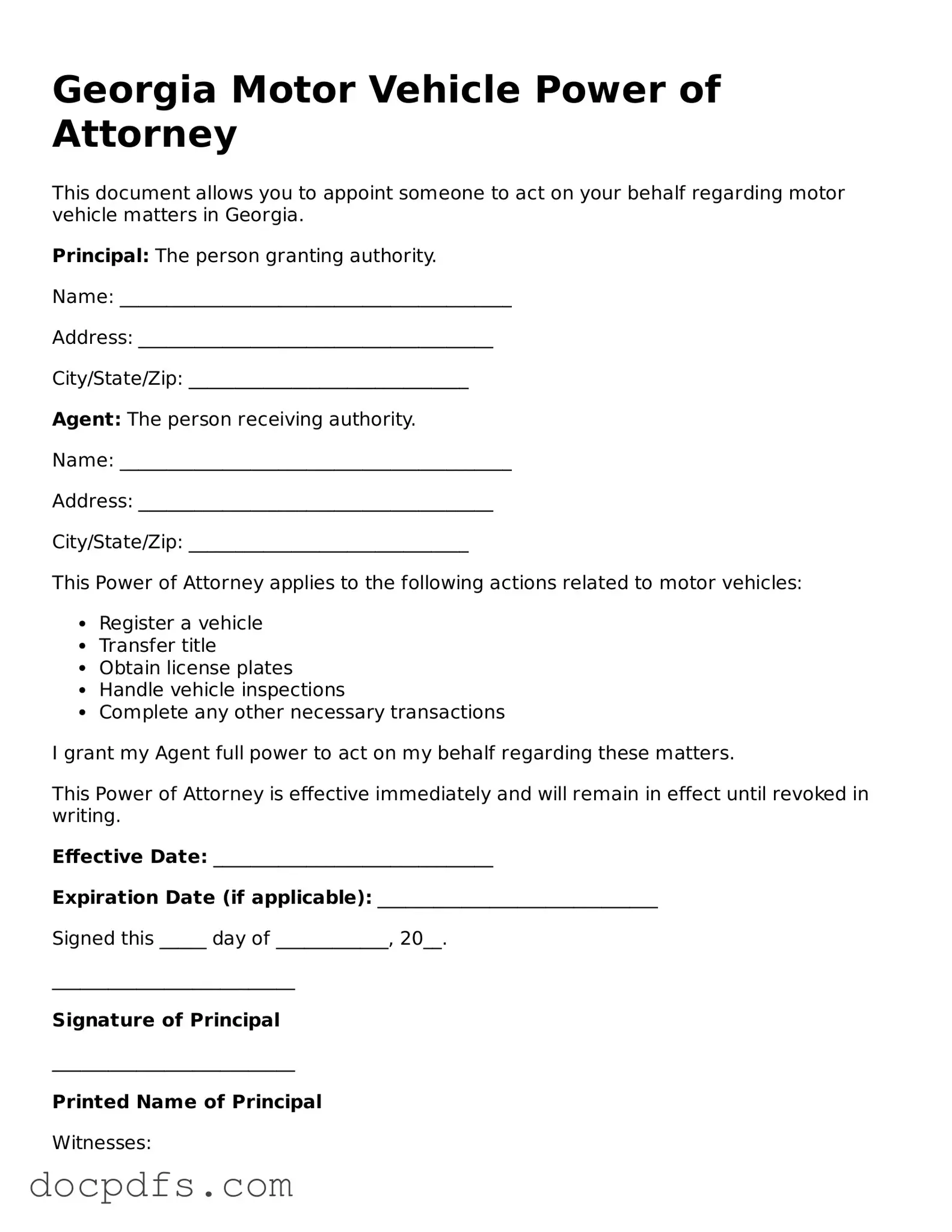Free Georgia Motor Vehicle Power of Attorney Form
The Georgia Motor Vehicle Power of Attorney form is a legal document that allows an individual to designate another person to handle specific tasks related to their motor vehicle. This can include signing documents, transferring ownership, or registering a vehicle on behalf of the owner. Understanding this form is essential for anyone looking to delegate motor vehicle-related responsibilities in Georgia.
Open Motor Vehicle Power of Attorney Editor Now

Free Georgia Motor Vehicle Power of Attorney Form
Open Motor Vehicle Power of Attorney Editor Now

Open Motor Vehicle Power of Attorney Editor Now
or
⇓ Motor Vehicle Power of Attorney
Finish this form the fast way
Complete Motor Vehicle Power of Attorney online with a smooth editing experience.